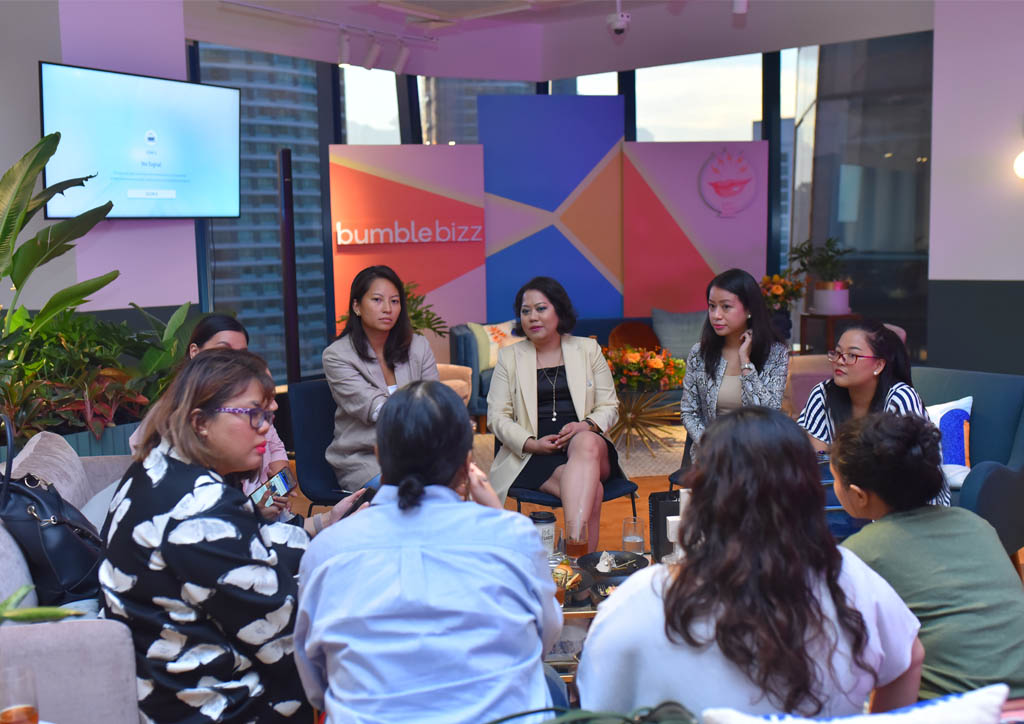Negotiating is something that most us aren’t comfortable with especially in this culture, more so as women.
I recall my first job offer as a fresh graduate. I was willing to accept any kind of offer because all I cared about was landing a paying job. When it came to my annual assessment and discussions of increases, I simply sat still, nodded, and smiled as my bosses handed me a piece of paper with the corresponding amount. Don’t get me wrong, they were good figures. I never felt short changed in any way. But I now wonder how the conversations would have turned out had I been more involved in the conversation. The unfortunate reality is we, especially women, were never really trained how to discuss money and finances. The assumption is we should be grateful with whatever is given to us.

She Talks Asia wants to change this mindset through their recent tribe meet up in partnership with Bumble Bizz Philippines aptly titled “Negotiating Your Worth.” Unlike their conferences that are held twice a year, these tribe meet ups are more intimate to encourage one-on-one interaction between the panelists and participants.

Lyn Pinugu, She Talks Asia Co-Founder, moderated the panel consisting of four women from various industries: The Purposeful Creative Founder Arriane Serafico, Globe’s Digital Content Strategist Maxine Cascalang, Entrepreneur Pam Begre, and Beauty Guru Liz Lanuzo. Each shared their unique and helpful point of views on how to approach negotiations whether you’re a fresh graduate, freelancer, or an experienced professional. These are some of the things that I learned from the session and my side bar conversations with some of the panelists including how to network because, let’s face it, the world itself makes us cringe.
Negotiating is a skill that can be learned.
Much like anything in life, negotiating can be learned and sharpened. It’s important to recognize that shame is inevitable and is a normal feeling when starting out. But we shouldn’t allow this to cripple us especially when we know we’re more than capable in doing the job. One helpful trick is identifying our ceiling and bottomline. More often than not, clients and companies really do have specific budgets in mind whether it’s for a project or role. Setting this bracket gives room to move around and eventually find a middle ground.
As a freelancer, Arrianne gave a solid 3-part plan when pitching to clients. First is to empathize and emphasize that you understand what the client needs. Second, provide options when sending a proposal. This gives them a leeway especially when they have a budget in mind. Third, be visual and provide examples of your previous work. This builds your credibility to the client which, in turn, would earn their trust.
Evaluate based on your values and potential to grow.
Money shouldn’t be the only factor when you’re assessing an offer. Yes, it’s practical to compute based on net income but there are other intangible costs that come with every opportunity. Liz shared that she had accepted a job offer that was lower with her expected salary because her goal was to learn about the ins and outs of the beauty industry. True enough, in a span of two years, she learned what she needed to put up her own skin care line, In Her Element.
A role may sound nice on paper but we should also asses what the trajectory of the job is and how it could help us grow as a person and professional. In this age where competition is getting tougher, having a growth and future-oriented mindset is a must. Build not just for the present but for the future.
Build your portfolio and not just your CV.
One thing that stuck with me is building a portfolio. When we hear portfolio, we often think of creative portfolios that are limited to design, writing, and multimedia but this shouldn’t be the case. Building our portfolio is a more powerful way of telling our professional story because it consists of projects that have tangible business KPIs and results. This is a great way to package ourselves especially when you’re not the type who likes to peacock your way through interviews or client pitches.
Networking shouldn’t be THAT painful.
I don’t think I’m the only one who thinks networking feels like a chore. I’ve been in the business for a while and a room full of people still terrifies me. Fortunately, I had the privilege of chatting with Liz on the sidelines and generously gave me a piece of advice on how to survive moments like this. “Just ask them questions,” she said. The key is to have an open mind and be genuinely interested with what they’re saying. This makes the conversation flow naturally. “People love to talk about themselves,” she jested.

It was a powerful and encouraging two-hour session. It felt nice to have a safe space where women can be vulnerable in sharing their struggles especially in a room full of strangers. Iza Calzado concluded the afternoon by announcing the theme of the conference this coming October which is “I Matter”, a conference focusing on mental health and wellness. ![]()







